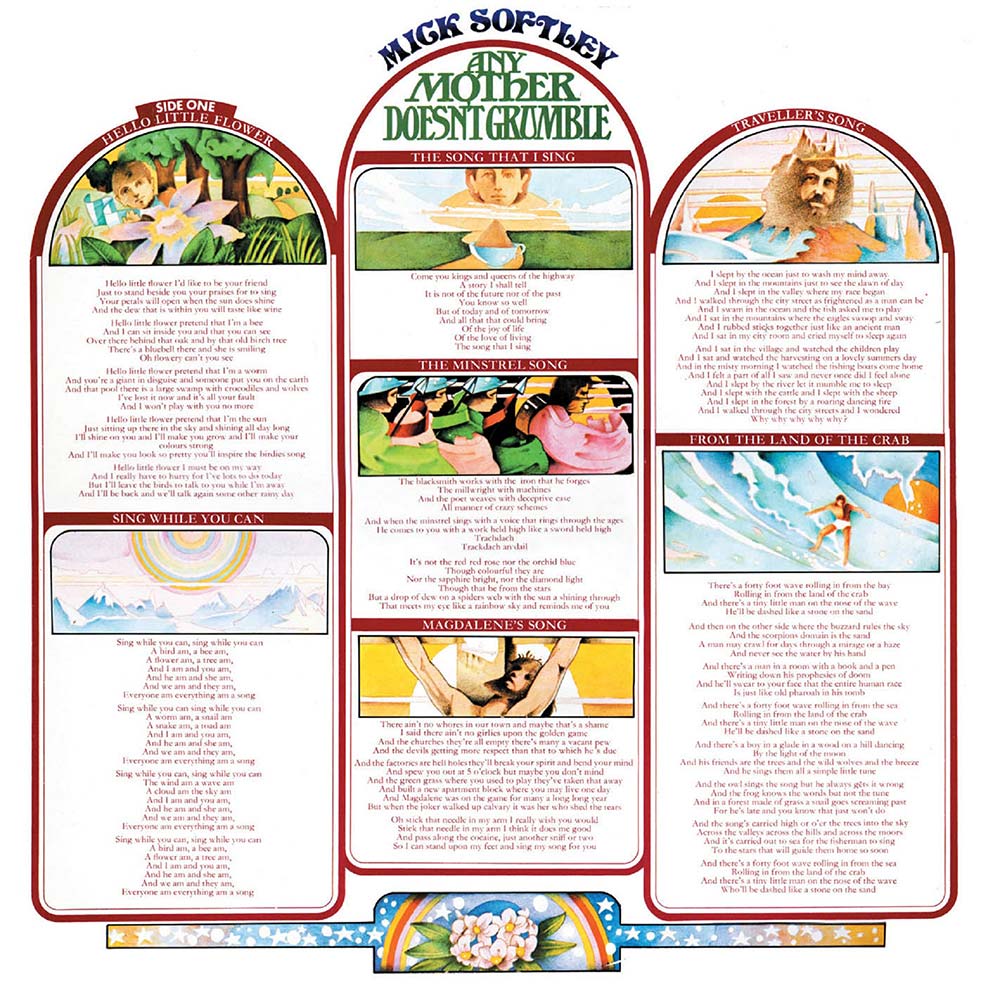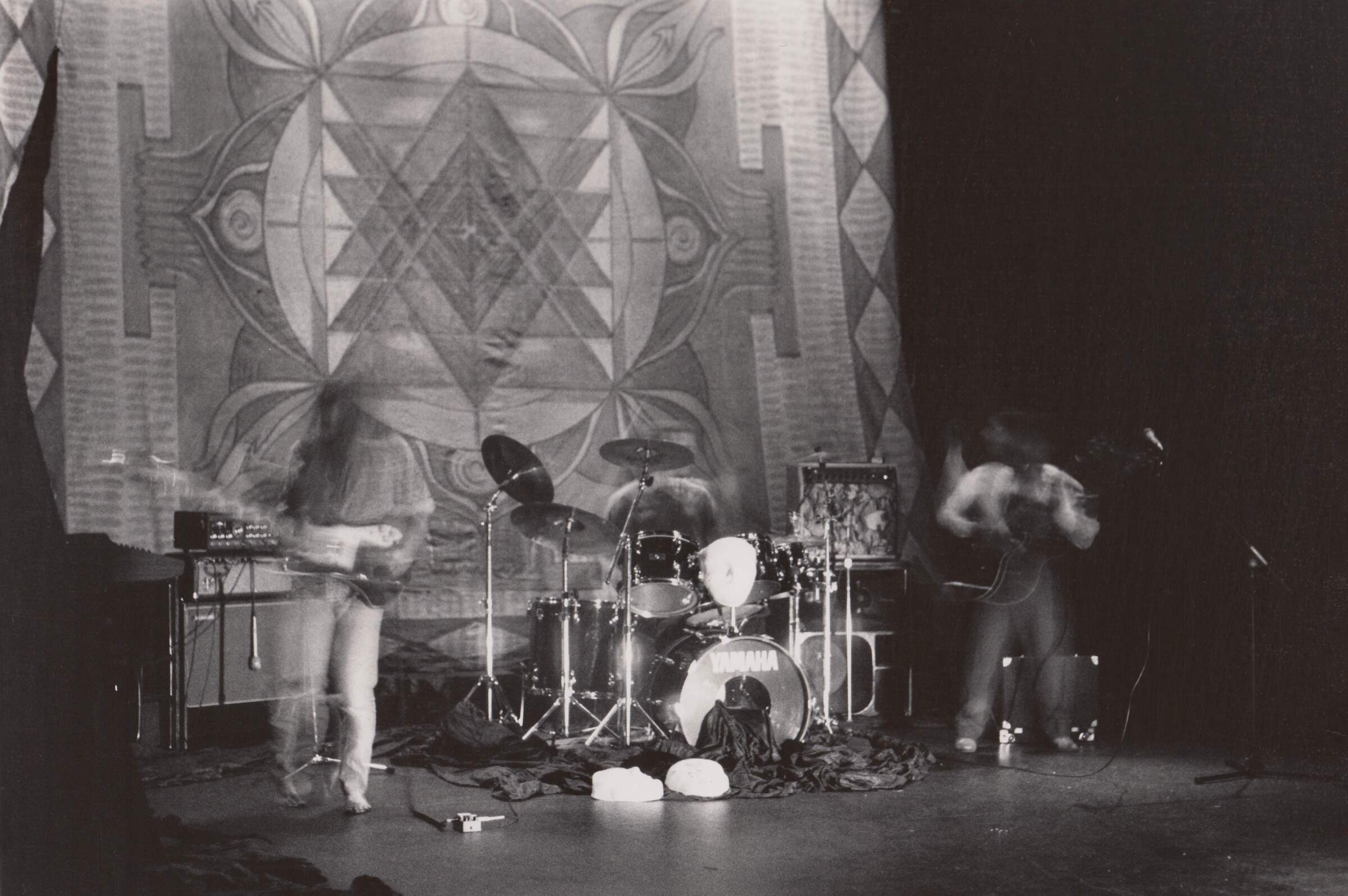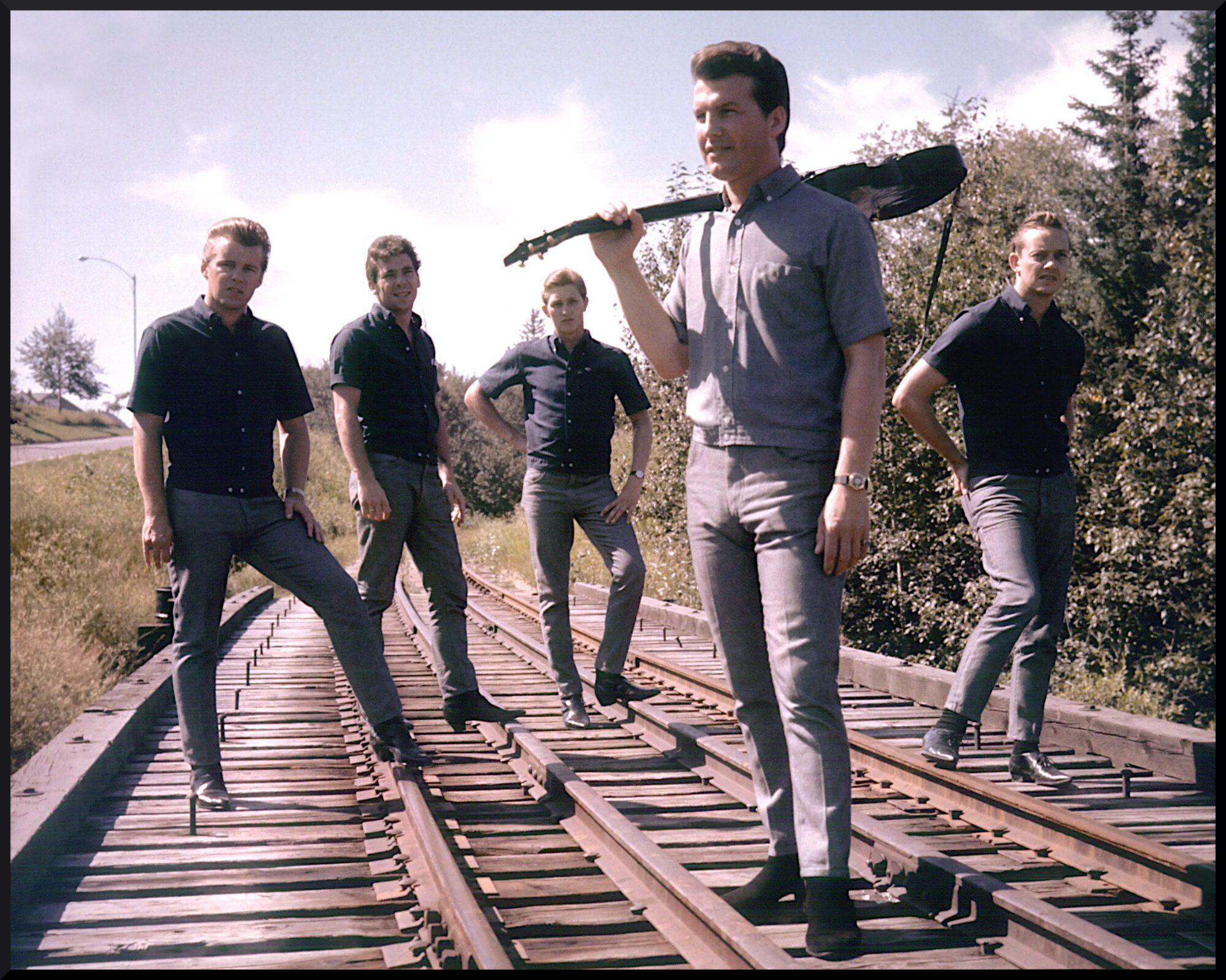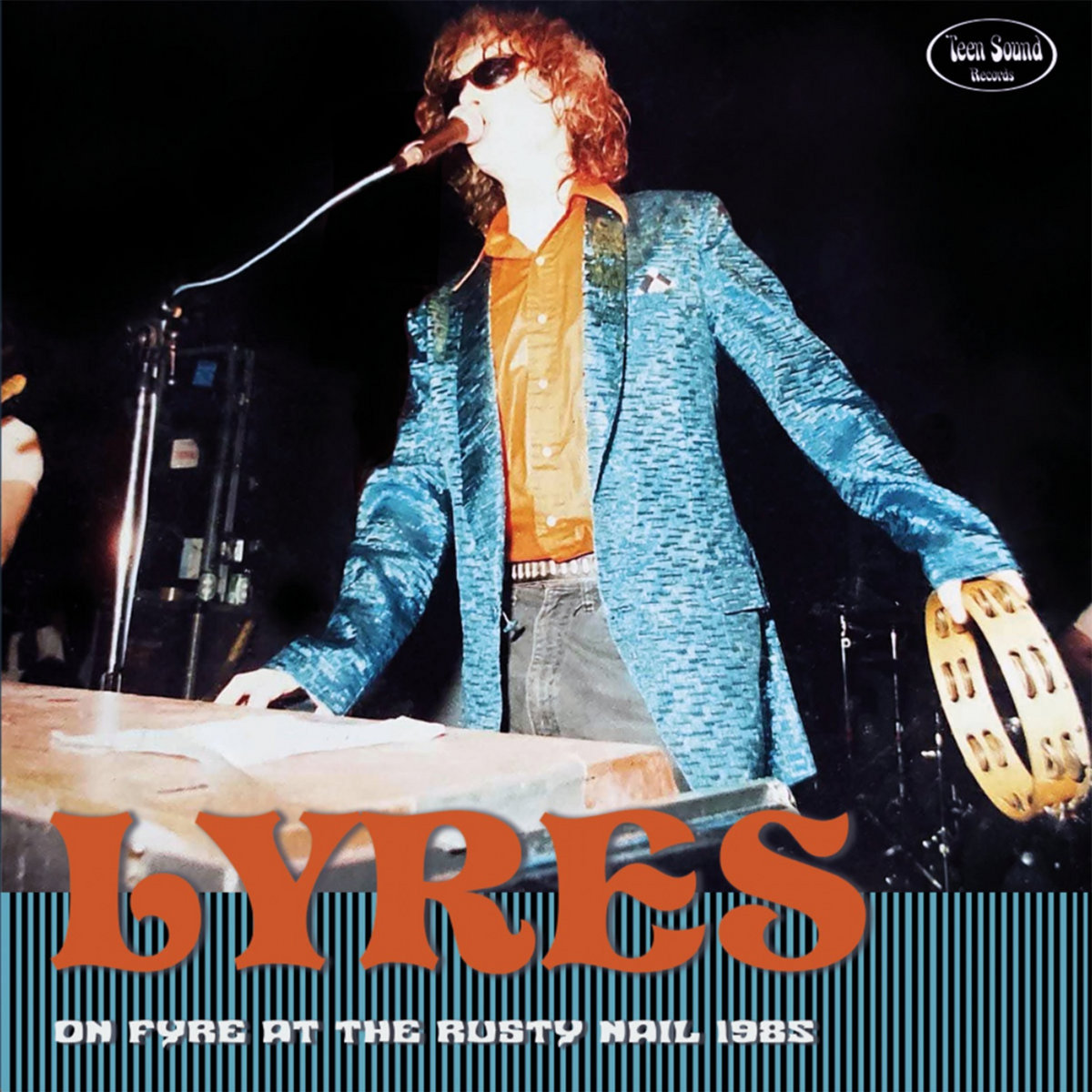Mick Softley – ‘Any Mother Doesn’t Grumble’ (1972)
At last a classic of the time before the Punk dam burst has a first CD release, from an era when a singer-songwriter could get a three-LP contract and residential studio time from global labels to do what they want, backed by the cream of session musicians. Thanks to Cherry Red for listening to recommenders like this writer, Mick Softley’s magnum opus is now issued in fine audio quality, guitar taps and fingers leaving the strings included!
This album was the culmination of a CBS contract, brokered by one involved with his first recordings for Eve Productions and Immediate Records. It needed something special to coax the writer-poet back into the studio at all, because embittered by Donovan taking two of his songs (including one of the earliest Vietnam protest songs, The War Drags On) then presented with a contract to sign after the fact. First album a decade earlier was a long one-day session where the producers picked what to put on the LP. Softley later called recording before CBS as various hells. An hirsute maverick to this day, he was a bohemian poet before and after turning to music to express his thoughts; he is to music what a psychical researcher is to science, an outsider that can be as expert as any.
Born in Essex, his earlier albums* negotiate suburbia to find something more—elusive as it is—guided by a personal moral compass. In every genre he sought to extend and experiment, starting via folk and blues roots, which in turn became his own blend with folk-rock, psych and jazz elements. Never navel-gazing like Nick Drake or the late Cohen, never formulaic like Jackson Browne or James Taylor, Mick Softley once said he only respected Richie Havens, claiming more thoughtful attention like Roy Harper or the more abrasively-direct Kevin Coyne: an adventurous innocence, like avant-garde literature with its own sting. Some of this album, like earlier songs and the single Time Machine, have appeared this century on numerous CD compilations depending on the genre. Apart from two later albums and finally a cassette issued by Doll in Zurich (when he lived in Holland and then Northern Ireland) over thirty years ago, there has been no music released by Mick Softley who returned to writing poetry.
His fourth album, the oddly-titled ‘Any Mother Doesn’t Grumble’ (CBS 1972) was issued in a lavish decorated cover (by Ian Beck who did Elton John’s ‘Goodbye Yellow Brick Road’) of printed lyrics with an illustrated inner sleeve, recorded in two of the leading studios of the time. The Manor was only the second residential studio in Britain, founded the year before by Richard Branson for his fledgling Virgin Records. The older Sound Techniques, started nearly a decade earlier in a converted dairy off Chelsea’s Kings Road, had an upstairs control room and by this time was also 16-track like the Manor. Early folk classics were recorded there alongside debut albums by Jethro Tull and the Incredible String Band, the early singles of Pink Floyd, and many of Joe Boyd’s produced albums such as the legendary Dr. Strangely Strange and Nick Drake. The musicians on ‘Any Mother Doesn’t Grumble’ were mostly the in-house sessioneers of the homely Sound Techniques (which became Olympic in 1974), with its much-appreciated (and frequented) cake shop next door and pub opposite.
Featuring such stalwarts of Fairport Convention, Fotheringay and Curved Air as Jerry Donohue (guitar), Pat Donaldson (bass), Gerry Conway (drums) and Barry de Souza (percussion), there was also Lyn Dobson (sax, flute, clarinet, harmonica) who’d worked with Georgie Fame, Manfred Mann, and Soft Machine as well as Drake’s ‘Bryter Layter’ (1970). His own solo LP appeared in 1974 to critical acclaim. Contributing keyboards was the producer Tony Cox, four years younger than Softley, moog player on albums by Martin Carthy, Mike Heron, the Bunch with Sandy Denny, and Spirogyra, as well as producing famous albums by Trees, Caravan and Magna Carta. Two years later he opened Sawmills Studio (used by Clive Palmer, Stone Roses, The Verve, Muse etc) and married singer-songwriter Lesley Duncan. Although Softley gigged, busked and recorded with an array of musicians in his career up to them, the resulting classic is surprising in that all were playing or meeting together for the first time, with the exception of Cox who had been involved on all his CBS albums.
The twelve tracks open with two songs flowing into each other, The Song That I Sing and Hello Little Flower, a technique used twice on the album in variant tempos both times. The Minstrel Song refers to different trades and working class background “with work held high”: he always believed the words were integral, he saw himself as a wordsmith crafting in the tradition of minstrels and troubadours, which became later subjects on his post-CBS albums for Doll. The shortest track, Magdalene’s Song, is about the golden game referring to its first reported purveyor (with modern grey life, factories as hell holes, and cocaine in typical Softley style) and his Catholic roots like the reworked closer I’m So Confused first issued on Immediate in 1965. That single’s clanging guitars and organ is here replaced on a slightly longer version where fluid bass does the same function with added drums.
The sadness and joy of his lived Traveller’s Song—he spent the CBS advance on a transit van to tour and live in—leads into From The Land Of The Crab, a metaphoric warning about the 40 foot wave rolling in that will deluge us in modern life. It was also a B-side to this album’s poignant Lady Willow on a criminally-ignored picture-sleeve single the same year. One contemporary review noted something new on this album: “a majestic feel, creating images of some awe-inspiring vastness”, which isn’t mere hyperbole (reviewers are rarely noted for that anyway). Crab and Great Wall of Cathay, with its Chinese-sounding percussion and wind instruments in a too-short trip through Chinese culture, hold an intense beauty suggestive of illicit overhearing of someone’s soul—and friction on the equally-cinematic Have You Ever Really Seen The Stars. It says that Man is a tiny speck who has done some right and some wrong, yet the sun will set a long time after he has gone. Recounted moments of the momentum of existence are fleeting but pregnant, we all know them but rarely consider as he reminds us.
The latter, the album’s longest at over seven minutes, is joined to If Wishes Were Horses, and both are among the most thought-provoking songs about human life ever penned. If beggars were choosers, it suggests, they would ride in a coach with six stallions blazing in the sky and through rainbows, they would be death-defying heroes fishing for blue whale, in a Trojan horse fighting Spartans with Hercules, riding the wind beside Genghis Khan, for they are life’s dreamers and yet you ask for more. But where are these heroes, the adventurers of today? Do they ride in space ships blasting off from Cape Kennedy, or (with sarcastic drawl) the superstars you foist your glory on? Or are they the “drifters, nomads and bums” who Softley prefers to associate himself with in the grand scheme of things.
The album is a tour-de-force of emotional story-telling, singed (in both meanings) by the camp-fire, full of experience and insights taking a song to its own place, unimaginable by anyone else. Worldly wisdom (Sing While You Can; Traveller’s Song) is juxtaposed with the quaintness (but not feyness) of the Incredible String Band on Hey Little Flower, If Wishes Were Horses, and the delicious Lady Willow tripping along with bongos and guitar interplay. What one might expect as fillers (on others’ more famous albums) are not, but little gems or interludes to accompany more expansive thoughts like an epic poem, each addressed to you as an individual listener.
A well-known scribe recently called the album “criminally overlooked”, though Softley had by then appeared on French and other European TV music shows as well as leading continental festivals. Moving abroad not long after, he surfaced as a support to the McGarrigle sisters (according to their website) at the Paradiso of Amsterdam in February 1977. Rob van Wely was busking in Haarlem when a long-grey-haired and bearded man asked him whose song he’d just sang: “It’s yours!” he replied. He asked him if he busked anymore, Mick said he was working in a chips factory to pay for repairs to his van. Do you get gigs anymore? “Not too many”. Rob most generously organised some with himself as support, but then lost contact when busking in Switzerland and Bali where he also films today. A number of friends recall such encounters, brief and ephemeral as ghost tales yet enduring for a life-time. Numerous latter-day folk singers claim him as an influence, and the classical experimenter Simon Rackham dedicated songs to his old friend on his fine ‘Dedications’ album as recently as 2012, attesting to such long-held esteem.

Opening with “Come you kings and queens of the highway, a story I shall tell…” ‘Any Mother Doesn’t Grumble’ is dreamier, more ethereal than his earlier LPs. Perhaps due to working with leading musicians in the genre, it also feels more confidently relaxed to create hypnotic appeal as a corner-stone of prog-folk. The liner notes call it a rich tapestry of musical diversity, which also applies to his whole career. Never swamped by the swirling additions, it is a tight folk-rock masterpiece with psychedelic flourishes and atmosphere: think what Vertigo did for Dr Strangely Strange’s second LP, a superb addition bringing out the best of those involved including Softley’s voice that’s one of the loudest, with fullest range, committed to vinyl.
The panoramic yet always modest writing, sensitive to the point of pained, joyous to the extent of romping in the woods with the Duchess or her daughter, is a beguiling interpretation of life’s sadness, rawness and sheer magic, within the jolliest of rhythms that haunt long after the recording stops. Surprisingly issued now by a subsidiary normally specialist in country music, there are no bonus tracks—no Time Machine single or the only live track on a French festival album—but who cares, this is a snort and adrenalin rush of the first order and well-worth treating yourself to in this winter of discontent.
Mick Softley – ‘Any Mother Doesn’t Grumble’ (Cherry Red / Morello Records MRLL 65, 41.18)
See earlier Psychedelic Baby articles for a fuller career story, including interviews with Mick Softley’s friends.




Great review of great album!
Marta M.
Yes a great album and review shame Mick never got the attention he deserved.